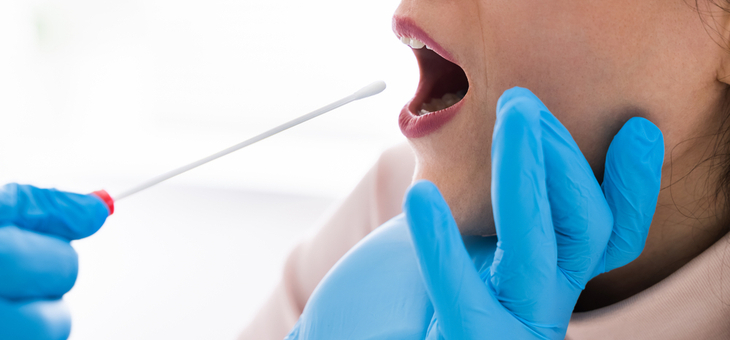Most people are aware that the risk of dying from COVID-19 increases for people who are obese or suffering from certain diseases, especially respiratory diseases.
A new study, however, has found that the risk of death and complications from COVID-19 also increases for people suffering from gum disease, while those with good oral health have much better outcomes.
The Department of Health estimates that 22.9 per cent of Australians have moderate or severe gum disease, making this an important discovery.
Read more: Voters divided over government’s COVID performance
The new international study led by McGill University researchers found that infected and inflamed gums may result in higher rates of complications and more fatal outcomes for individuals diagnosed with COVID-19.
The study suggests that higher risk of complications such as intensive care admission and death could be associated with gum disease.
Researchers discovered that COVID-19 patients with gum disease were 3.5 times more likely to be admitted to the intensive care unit, 4.5 times more likely to need a ventilator, and 8.8 times more likely to die when compared to those without gum disease.
Read more: Dying apart, buried together
Professor Belinda Nicolau said the results highlighted the importance of good oral hygiene.
“Looking at the conclusions of our study, we can highlight the importance of good oral health in the prevention and management of COVID-19 complications,” Prof. Nicolau said.
“There is a very strong correlation between periodontitis (gum disease) and disease outcome.”
Read more: Vaccination for over 50s fast-tracked
Periodontitis, also referred to as gum disease, is a serious infection of the gums that damages supporting tissues of the teeth and if left unmanaged can lead to bone loss.
However, it is largely preventable through maintaining good oral hygiene with daily brushing and flossing and getting regular dental check-ups.
Dr Wenji Cai explained that gum disease was often linked to poor outcomes in other diseases as well.
“Periodontitis has been considered as a risk factor for a number of both oral and systemic diseases,” Dr Cai explained.
“It’s an invisible pandemic. We need to raise awareness of the disease and make more effort to maintain periodontal health, especially during this global pandemic.”
The study also found that blood levels of biomarkers that indicate inflammation in the body were significantly higher in COVID-19 patients with gum disease, which may explain the higher rates of complications for those patients.
“Periodontitis causes inflammation of the gums and, if left untreated, that inflammation can spread throughout the body,” explained Dr Cai.
“In patients with severe cases of COVID-19, the virus causes an inflammatory response that can lead to complications such as being intubated or even death. Our research shows that periodontitis can excerbate this.”
Symptoms of gum disease include:
- Bleeding when brushing or flossing your teeth. It’s not normal to spit blood into the sink when cleaning your teeth. Your gums shouldn’t be bleeding at all, and this may be a symptom worth consulting your doctor about.
- Receding gums. You may notice that your teeth look longer.
- Bad breath. Gum disease is a bacterial infection, which can cause a bad smell. While morning breath can be normal, chronic bad breath may be a sign of gum disease.
- Sensitive teeth or feeling pain when you chew your food.
- Red or swollen gums.
Are you concerned about developing gum disease? Is dental hygiene a high priority of yours?
If you enjoy our content, don’t keep it to yourself. Share our free eNews with your friends and encourage them to sign up.

